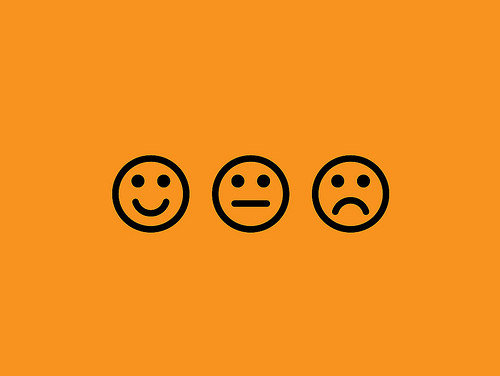Optimism vs Pessimism – Do You Need Both?
by Andrea M. Darcy
There is a long-standing debate about whether it’s better to be an optimist or a pessimist. Do the

By: Alan O’Rourke
Pollyannas of the world win out over those of us who predict the worst? Or is it possible a bit of both is best?
Are you an optimist or a pessimist?
A quick online test can reveal whether or not you fall squarely into the pessimist or optimist camp. Answering yes to questions similar to the following would put you in the optimist camp. Answering no would be an indicator of pessimism.
- Do you believe that your future will be generally good?
- Do you feel as if the world is good?
- Do you believe you will achieve your lifelong goals?
Can’t you be both?
But what if you feel ambivalent to these questions, have a variety of yes and no responses, or feel that it quite frankly, your answers will vary by day? You might be ahead of the curve.
It’s true that we all may be naturally inclined to one way of thinking or another– known as “dispositional optimism/pessimism”.
But current research, such as that being carried out in the University of Michigan’s ‘optimism-pessimism lab’, suggests that a productive way to view optimism and pessimism is as an outlook you choose based on the particulars of the situation at hand. This new way of viewing optimism and pessimism as malleable instead of fixed perspectives is called “strategic optimism/pessimism”. The idea is that choosing the right outlook for the right situation might lead to better outcomes.
Strategic Optimism vs Pessimism – When to Use What

By: Sakeeb Sabakka
So how can you determine what outlook can serve you best when it comes to optimism vs pessimism?
Optimism creates motivation and hard work, and can be like a buffer from the risk of failure.
When optimism works best
Optimism works best when:
- a situation has a lot of difficulties to overcome
- creativity is required over simple logic
- the road ahead will be long
Examples of optimism being the right perspective might be when you are coming up with an idea for a business, starting a year-long contract for a difficult client, or deciding on a long-term exercise goal or nutrition plan.
When to use pessimism
Pessimism has its uses. It can help you to prepare for unavoidable difficulty, giving you mental strength when dealing with shock and pain. Pessimism has also been found to be quite useful in overcoming fear, because thinking of the worst outcomes can spur people to take action they might otherwise avoid. It can also help us be more balanced when our ego is about to make us be foolish.
A pessimistic outlook may be best when–
- you have been told you are about to have bad news
- an impending bad outcome is a fact not just a worry
- mental preparation could help you be ready for a devastating experience
- a fear is looming over you that needs dealing with
- you are in your comfort zone and assuming something will go right but are being warned by friends of overconfidence (called ‘defensive pessimism’)
Examples where pessimism might be useful are knowing you are going to lose your job in a few weeks and that pessimism might help you get started on looking for a new one. Facing your fear of moving house so that you finally make the effort to find a more affordable place over getting evicted.
An example of ‘defensive pessimism’ might be if you have lost that job, get a big interview, and are so overconfident you’ll get it you don’t want to prepare. If your friends are pointing out you are being too optimistic, a bit of pessimism might help you see the weak spots in your personal presentation you could use some brushing up on.
Why bother being an optimist, then?
Looking at the above examples, if might seem as though there are actually more benefits to being a pessimist, and that optimism is just a bit of self trickery to keep yourself persevering.
But optimism has other effects beyond just solving a situation. While pessimism has its benefits, according to research a positive outlook still takes the lead as the better perspective.
The benefits of optimism include:
Better Mental Health. A study at the University of Jaen in Spain found that optimism was related to better overall psychological wellbeing.
Better Physical Health. At the University of Helsinki a study looked at the health of over 5,000 municpal workers found that optimism may reduce not just the risk of health problems, but also one’s ability to recover quickly from illness.
A longer life. In a decades long study carried out by a Yale University professor on the inhabitants of a small town in Ohio, it was found that those who felt optimistic about growing old had lived an average of seven and a half years longer than those who were negative about their future.
But aren’t some of us just born pessimists?
While there has been some evidence that biological factors do indeed influence how we look at the world, it seems that our biological dispostion is not as fixed as once thought.
A study on twins carried out by Professor Tim Spector at St Thomas’ hospital in London has been discovering that while we do have differences in our personalities because of genetic factors, our genes are not constant but can be effectively turned high or low in response to our environments and life experiences. This is a process now called ‘epigenetics’.
In other words, we control our genes far more than once realised.
An example is being found in motherly love. A study at McGill University in Canada is finding changes in the activity of genes in response to how much maternal love a child receives. They believe this determines how well the child will be able to handle stress as an adult, which confirms the tenets of Attachment theory.
What can I do if I am prone to pessimism?
There are evidence-based ways to move your mind from negative to positive ways of seeing.
One of these is cognitive behavioural therapy (CBT). A form of psychotherapy, it focuses on learning how to recognise your cycles of negative thinking and disrupt them with more balanced thoughts, slowly retraining your brain to think differently.
Another practise for encouraging an optimistic outlook is mindfulness. A study on mindfulness has shown that it can increase positive judgements and reduce negative bias.
Now integrated into sessions by many therapists here in the UK, mindfulness encourages us to refocus on what is actually happening and what we are actually feeling right now. It helps us train our mind away from anxiety about the past and worries about a future we can’t control. This refocussing tends to help us notice the things that are going right for us, which our anxiety and worries tend to have us overlooking.
Takeaway tips from Optimists for Pessimists
Take these quick tips from optimists and see how you can apply them to your life starting today.
1. Be Realistic
Optimists don’t ignore problems or refuse to see what is right in front of them. Instead, they acknowledge issues and then actively problem solve ways to improve or manage their situation.
2. Persevere
Optimists not only devise ways to improve or cope with difficult situations, but they stick with their plans, even when things get difficult.
3. Believe that Your Actions Affect the Outcome
Optimists don’t live in a state of delusion where they expect wonderful things to magically go their way. Instead, optimists realise that productive work and effort will increase the likelihood of achieving their desired goals.
4. Consistently View Your Goals as Attainable
Optimists believe their desires and goals are possible. They believe that good can come their way as long as they keep working.
5. Change Your Perspective
Optimists explain bad events from a less personal angle. Instead of blaming your “bad luck” on a personal flaw or by claiming that the world is just rotten, try a new perspective by looking at the disappointment as an isolated event.
 Andrea M. Darcy is a mental health and wellbeing expert and personal development teacher with training in person-centred counselling and coaching, as well a popular psychology writer. Follow her on Instagram for useful life tips @am_darcy
Andrea M. Darcy is a mental health and wellbeing expert and personal development teacher with training in person-centred counselling and coaching, as well a popular psychology writer. Follow her on Instagram for useful life tips @am_darcy






